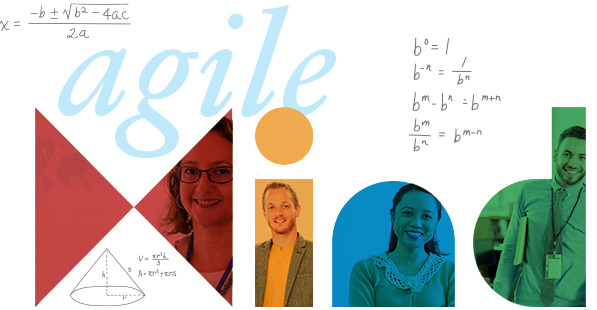“When a flower doesn’t bloom, you fix the environment in which it grows, not the flower.”
-Alexander Den Heijer
Brian has the privilege of leading the teaching and learning of 6-12 Mathematics for Pasco County Schools in Land O’ Lakes, Florida and is an education consultant with Dixon-Nolan-Adams Mathematics and Solution Tree.
Courses Taught: Grade 8 Pre-Algebra, Algebra 1, Algebra 1A, and Algebra 1B
Years of Experience: 10
Teaching Philosophy: You do not have to be sick to get better!
There are some universal truths that educators will agree upon, one of which is all students learn at different rates and some need additional time and support to learn. If this is common knowledge amongst educators, why do we constantly find ourselves in a reactive state? Knowing some students will need additional supports, how can we be more proactive?
I have taught in schools that have tried many things to create additional time to provide remediation to students – re-teaching content they don’t understand coming into our classes, before we get to our own material. I have started a before school tutoring program that was open to any student needing additional support. I have helped create a homeroom/intervention period three days a week where students could get the help they need during the school day. I have taught remedial math courses such as Algebra 1A (1/2 of Algebra 1 in year 1) as well as Algebra 1B (the other ½ of Algebra 1 in year 2). Providing additional time has real promise, but it is only the first step. It is what you do with the time that really matters!
A tougher question for educators to answer is “Do you believe all students can learn mathematics at a high level?” I do! I also believe that the supports we provide our students who have struggled with mathematics need to be targeted, proactive, and intensified!
To me, intensification and remediation are different. Intensification focuses on differentiating the way in which instruction is delivered to students so that all students can meet high expectations, as opposed to lowering our expectations for some students.
When intensifying our instruction for Algebra 1, we are delivering on our promise to students and parents that their child will receive a guaranteed and viable curriculum – whatever it takes. Educators are helpful by nature, and it is difficult for us to resist the urge to focus on remediating students’ mathematical deficits by re-teaching and rehearsing process skills. When intensifying instruction, we need to identify what is the most essential prerequisite knowledge students must have to learn the mathematics we are about to teach, then we need to teach it, conceptually!
With intensification, students can get messy with the mathematics, make sense of it, articulate their thoughts, test conjectures, represent mathematics in different ways, and make connections between the different representations in order to learn mathematics at a deeper level –sometimes for the first time in their academic careers!
When working with students who struggle academically, the mathematics is undoubtedly important, but we would be selling ourselves short if we did not look at the whole child. During my first days teaching Algebra to students who struggle, I heard a lot of “I hate math!” and “I’m not a math person.” We must break this mindset that has often been instilled in students who have struggled in mathematics throughout their academic career. My response is typically a variation of, “I am sorry you have not had the opportunity to really learn mathematics, yet…” packaged with “I know that together we will be able to help you start to make sense of mathematics so you can become better at it each day and see the value it has to offer you in your life.” We have to be cognizant of student’s social and emotional needs before we can tackle their mathematical deficits. We need all students to believe in themselves as much as we believe in them! This is such an integral part of intensification – first, we change a student’s mindset and self-belief and then we give them real opportunities to put it into practice with mathematics. It has made all the difference for my students and continuously makes me thankful that I have the opportunity to work with them.
Brian M. Dean
@PascoMathNinja
#PascoMath
#DNAMath




